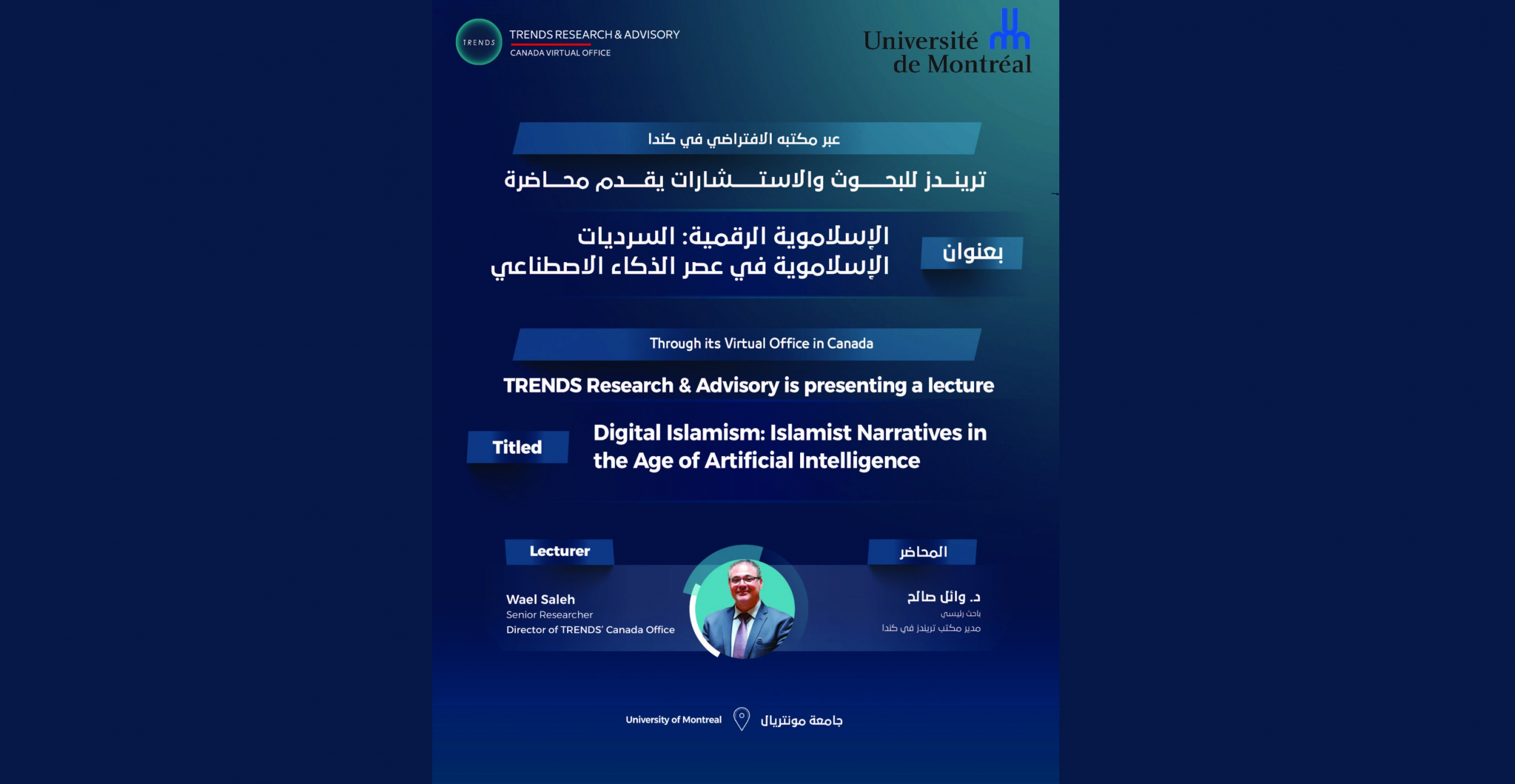Through its office in Canada, TRENDS Research & Advisory highlighted the importance of keeping pace with digital transformations and artificial intelligence (AI) in studying religious and political movements, particularly Islamist discourses and their methods of ideologically exploiting modern technologies.
This was the subject of a scholarly lecture delivered by Dr. Wael Saleh, Director of TRENDS’ Canada Office and Advisor on Political Islam, at the University of Montreal, under the title Digital Islamism: Islamist Narratives in the Age of Artificial Intelligence, organized by the Interdisciplinary Research Center on Religions (CIRRES).
Dr. Saleh noted that the digital age is witnessing a profound reshaping of religious practices and forms of religiosity. He explained that digital technologies and AI have expanded access to religious knowledge and practices on an unprecedented scale, while simultaneously creating space for a multiplicity – and at times contradiction – of narratives. This, in turn, has redefined the relationship with religion and religious actors.
In his two-hour lecture, Dr. Saleh focused on analyzing the methods by which Islamist movements and their transnational networks employ digital media and AI tools. He shed light on their strategies for formulating, adapting, and disseminating their ideological narratives, particularly emphasizing the Muslim Brotherhood.
The Director of TRENDS Canada Office explained that this lecture aims to deconstruct the discursive logic and strategic dynamics that shape the work of these movements within a fast-evolving information ecosystem, where AI profoundly reshapes communication structures, mobilization practices, and persuasion techniques.
Islamist ideas and sympathetic discourses are no longer confined to the writings of Islamist theorists or academic studies. They quietly permeate algorithms, search engines, and even AI-generated texts today. These models merely reflect the data fed into them. If this data is saturated with dominant Islamist narratives circulating in digital spaces, the inevitable outcome is the reproduction and amplification of such narratives. This marks a new battleground that warrants close attention.
The lecture was part of TRENDS Research & Advisory’s commitment to actively contributing to international academic discussions and providing in-depth insights into the transformations experienced by Islamist movements in the digital age. It reflects TRENDS’ endeavor to strengthen the role of knowledge in addressing the challenges of extremism and ideologically driven thought, while consolidating its vision of supporting moderation, promoting critical thinking, and enriching global dialogue on issues of religion and society.



